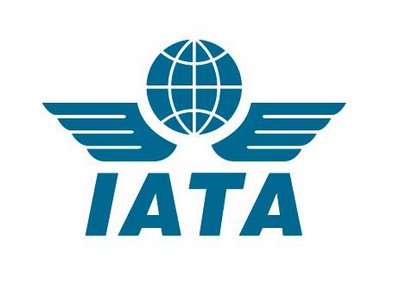Working Together On Fuel - Biofuels Are an Industry Priority

Air transport needs fuel that is safe, used in an environmentally responsible manner, with a reliable supply and at reasonable cost, said Tony Tyler, IATAs Director General and CEO in an address to the IATA Fuel Forum, taking place in Paris, France.
Tyler noted the creation of a manual of global standards for fuel supply, storage and provision as an example of what can be achieved when stakeholders work together. Safety always comes first. Recent incidents involving fuel contamination show the need for systems and processes that keep the fuel supply safe. Working together with the International Civil Aviation Organization (ICAO) and the Air Transport Association (ATA) we are producing the first manual of global standards for fuel supply, storage and provision though the ICAO processes. This is a true innovation in how we manage fuel with standards, best practices and procedures to safeguard quality throughout the fuel supply chainfrom the refinery to when it is delivered into the aircraft, said Tyler.
Tyler urged similar cooperation on environment and commercial issues.
- Environment: Fuel is closely linked to one of aviations great challengesto reduce its carbon emissions. Airlines are responsible for 2% of global manmade CO2 emissions. Aviation must be sustainable. Sustainability is our license to grow and provide the connectivity that has turned our planet into a global community. We have embraced this with commitments to improve fuel efficiency by 1.5% annually to 2020, cap net emissions from 2020 and cut net emissions in half by 2050 compared to 2005 levels, said Tyler.
Tyler cited the importance of introducing sustainable biofuels to this effort. Sustainable biofuels are safe, approved and airlines are using them for commercial flights. With the potential to cut aviations carbon footprint by up to 80% over the lifecycle of the fuel, sustainable biofuels have the potential to be a game changer. But they are still expensive and supply is limited. In other words, we need to commercialize them, said Tyler.
There is an opportunity for both our traditional suppliers and new entrants to engage in this exciting development. We need to work together and speak with a common voice. That is the way to convince governments to provide the right policies to develop a sustainable aviation biofuel industry, said Tyler.
Tyler outlined six steps for governments to promote the successful commercialization of sustainable biofuels: (1) foster research into new feedstock sources and refining processes, (2) de-risk public and private investments in aviation biofuels, (3) provide incentives for airlines to use biofuels from an early stage, (4) encourage stakeholders to commit to robust international sustainability criteria, (5) make the most of local green growth opportunities, and (6) encourage coalitions encompassing all parts of the supply chain. Such policies would help increase volumes and drive down costsexactly what is needed to move forward. And at this time of global uncertainty, it makes sense for governments to invest in sustainable biofuels that will increase energy self-sufficiency and create jobs in the green economy, said Tyler.
- Commercial Issues: Along with encouraging cooperation on supply reliability issues that impact even the industrys largest hubs, Tyler called on governments to re-think taxation and pricing policies that inflate jet fuel costs in light of aviations significant economic and social benefits.
Aviation is a catalyst for economic growth and jobs. At a global level aviation supports $3.5 trillion in economic activity and 33 million jobs. Particularly at this time of economic uncertainty, governments should take strategic advantage of aviations connectivity to support growth and jobs with policies that support competitiveness, said Tyler. Alongside reminding governments to abide by Chicago Convention commitments not to tax international jet fuel, Tyler called on governments to ensure competitive fuel supply environments at airports and to re-think fuel pricing policies with the aim of supporting aviations competitiveness as a strategic component of national economies.
In 2011, the industrys fuel bill is expected to be $176 billion (30% of operating costs) based on oil at $110 per barrel. In 2012, the fuel bill is expected to reach $201 billion (32% of operating costs) based on an average oil price $100 per barrel. Overall industry profitability is expected to decline from $6.9 billion (1.2% net margin) in 2011 to $4.9 billion (0.8% net margin) in 2012.





.png)


.jpg)


Comments
There are no comments yet for this item
Join the discussion